|
Have you ever wondered why the Church decided to celebrate Mary, as Mother of God, on the first day of each calendar year? After all, we’re still in the midst of Christmas! Isn’t this season already busy and full of Feast Days and devotions? Before she could be revealed as the Immaculate Conception, or celebrated as Our Lady of Fatima, Lourdes, or Guadalupe, or even honored as Lady Poverty by St. Francis, Mary first had to accept God’s will for her in salvation history in order to become the mother of the savior who was born on Christmas Day.
In St. Luke’s Gospel, Mary is first hailed as God’s “favored one!” If this title, bestowed by the Almighty’s messenger, wasn’t honor enough, Mary would later receive the even greater title of “Mother of God.” Her cousin St. Elizabeth would confer this title upon her with the words, “the mother of my Lord.” First, of course, Mary had to agree to what God asked of her! Mary may not have understood just how great the decision was that she made, but, despite her youth, she nevertheless had the great gift of faith in God. Because of her infinite trust in God and her famed fiat, we can definitively venerate Mary, the Mother of God, and ask for her intercession. Mary fulfills a unique role in the Mystery of Christ and the Church. Hailed as Theotokos (literally, “God Bearer”) by the Church in 431 at the First Council of Ephesus, Mary’s title reflects not only her role in salvation history, but also asserts the divinity of Christ. Just as the moon does not bear its own light but instead reflects the light from the sun, Mary entirely reflects the brilliance and grace of God. While a universal celebration on October 11 of the feast of the “Maternity of the Blessed Virgin Mary” was not declared by the Church until 1931 by Pope Pius XI, history records similar celebrations as part of the Christmas octave as early as the 13th or 14th century in Rome and Spain. Later celebrations developed in the 18th century in Portugal, Brazil, and Algeria and continued to take root around the world. After this great feast was finally moved to the first day of January by Pope St. John XXIII (in his 1960 revision of the liturgical calendar and rites), the Church would, at the Council Second Vatican, reaffirm Mary’s place in the Church Universal: Redeemed by reason of the merits of her Son and united to Him by a close and indissoluble tie, she is endowed with the high office and dignity of being the Mother of the Son of God, by which account she is also the beloved daughter of the Father and the temple of the Holy Spirit. Because of this gift of sublime grace she far surpasses all creatures, both in heaven and on earth. At the same time, however, because she belongs to the offspring of Adam she is one with all those who are to be saved. She is “the mother of the members of Christ... having cooperated by charity that faithful might be born in the Church, who are members of that Head.”… The Catholic Church, taught by the Holy Spirit, honors her with filial affection and piety as a most beloved mother. Even more recently, Pope Francis reflected upon why Mary is thus honored as the Mother of God and not just the Mother of Jesus: From the moment that our Lord became incarnate in Mary, and for all time, he took on our humanity. There is no longer God without man; the flesh Jesus took from his Mother is our own, now and for all eternity. To call Mary the Mother of God reminds us of this: God is close to humanity, even as a child is close to the mother who bears him in her womb. As we continue our celebration of Christmas, let us consider how, in His mother, God the Son was made Incarnate not only to be with us, but also to be like us! The Blessed Mother, seen in every nativity scene, faithfully watches over the infant in the manger as the Mother of God and also as mother to each of us! She does so with great love, silently in her heart (cf. Luke 2:51). In Mary we find what really matters—not only during the Christmas season, but in the whole of the Christian life. As her children, may we look upon Mary with love and faithfully call upon her intercession with great affection.
1 Comment
This Sunday's reading from Luke is from one of my favorite passages in the Gospel. We pick up with the two disciples who just encountered Jesus on the road to Emmaus. Whatever business these disciples had out in the countryside, they abandoned their plans after their encounter with Jesus and ran back to Jerusalem to share what had happened. The Gospel says that “While they were still speaking about this, he stood in their midst and said to them, ‘Peace be with you.’” Based on how abruptly Jesus appears to the rest of the disciples, we can imagine that they were incredulous at what Cleopas and his companion were telling them. As with “Doubting Thomas,” it seems that the other disciples also needed to see in order to believe.
It’s interesting to compare the encounter on the road to Emmaus to the interaction that takes place here. When the two disciples met Jesus on the road to Emmaus, they had no idea it was him. He walked with them, developed a rapport with them, and only then did he challenge their worldview and lack of faith in the promises of God. He gently rebuked them, opened up the Scriptures to them, and then broke bread with them. And it wasn’t until that moment that they truly understood who Jesus was and how he fulfilled the Scriptures: “Were not our hearts burning within us while he spoke to us on the way and opened the scriptures to us?” Jesus was patient, meeting them where they were and letting them understand God’s work at their own pace. When Jesus appears to the rest of the disciples, he seems to appear out of nowhere. They all panic and think he’s a ghost until he proves his physical presence to them: he shows them his wounds and even eats something right in front of them. It seems he has the intent of driving the point home, opening their minds to understand the Scriptures. This time, it’s without rebuke, without judgment or frustration. He instead gives the disciples something to look ahead to: “You are witnesses of these things… I am sending the promise of my Father.” He doesn’t just explain the past, but also hints at what’s to come! I love this passage because it speaks loudly to our tendency to not really take matters of faith to heart. And it’s so easy to do. Even for a person of faith, the Passion, death, and Resurrection of Christ can seem completely outrageous! We can be slow to understand God’s plan and actions in the world and in our lives, especially when they are different from our own. Even saints like Mother Teresa experienced doubt at times. But we can take heart in knowing that, when these times of doubt come up, Jesus will make himself known to us in some way, much like he did on the road to Emmaus and in his appearance to the disciples in Jerusalem. He may not be as explicit as we’d expect; it can come through a word from a friend, a kind gesture from a stranger, or even our own actions toward others. God uses all the experiences and encounters in our lives to invite us to encounter him, too. Just like on the way to Emmaus, he walks with us, befriends us, and shows us the truth. Sometimes when we are slow to understand, he acts more directly and obviously in our lives, as he did with the disciples in Jerusalem. As we continue this joyful season of Easter, let us always listen to those times our hearts are burning within us. It is then that God speaks to us most clearly, if only we pay attention to Him. Question for Reflection: How is God walking with you this Easter season? Besides receiving and visiting Our Lord in the Blessed Sacrament at Mass and Adoration, I find that the most nourishing aspect of my spiritual life is friendship with the saints. The Church holds celebrating the saints and asking for their intercession in high regard, as the Solemnity of All Saints, which falls on November 1st each year, is a holy day of obligation. The Vigil of All Saints, then, falls on October 31st each year. One goal of the Christian is to engage in prayer with God, and prayer, simply put, is conversing with God. Each day, we can offer our work to God and talk to Him frequently. This is not always easy, though, and I have found that friendship with the saints helps immensely. A friendship, which is the mutual willing of the good between people, is cultivated with communication and time spent together. Aristotle and Shakespeare, in their genius commentaries on friendship, always return to the simplicity of authentic friendship. Developing a friendship with the saints does not need to be overly-complex. It can also be founded upon communication and time spent together, ultimately bringing us closer to God and strengthening our communication with Him. Communicating daily with the saints further orients our minds to the supernatural, to the existence of the “things…invisible” that we recite in the Creed, and it also strengthens us in the fight for our souls. By communicating with the saints, we will become more like the saints, who in their devotion to Christ became like Christ. Thus, the saints will help us to become more Christ-like. The poet Gerard Manley Hopkins gets at this point in one of his poems: I say móre: the just man justices; Keeps grace: thát keeps all his goings graces; Acts in God's eye what in God's eye he is -- Chríst — for Christ plays in ten thousand places, Lovely in limbs, and lovely in eyes not his To the Father through the features of men's faces. The “just man” is the saint, and the saint’s Christ-like actions help him to become like Christ. As I mentioned in my last blog, stories of the saints are dramas of the highest caliber. Each saint had a unique personality and found their way to heaven in their own special, grace-filled way. There are so many saints that everyone can find someone they relate to or want to emulate. Below, I have listed just a few of my friends, and I pray that they will intercede for you! Sts. Peter and Paul, St. Edmund Campion, St. Ignatius, St. John the Beloved Disciple, St. Luke, St. Catherine of Sienna, St. John Paul II, Bl. Pier Giorgio Frassati, Bl. John Henry Newman, Sts. Thomas More and John Fisher, St. Robert Southwell, St. Henry Walpole, St. Aloysius Gonzaga, St. Robert Bellarmine, St. John Berchmans, St. Francis Xavier, St. Leo the Great, St. Augustine, St. Vincent Pallotti, St. Thomas Aquinas, St. Therese of Lisieux, St. Teresa of Avila, St. Josemaria Escriva, St. John Vianney, St. Joseph, Guardian Angels, Our Lady… Ora pro nobis! A few years ago, I was backpacking through the desert of northeastern New Mexico. On one particular day, we were going to climb the tallest mountain of our trek, Baldy Mountain, at an elevation of 12,441 feet. As we got higher, the climb became more difficult with thinning air and more challenging terrain. As we neared the summit, I ended up in front of the crew. Just as we reached the summit, our crew leader, Jordan, literally gave me the final push to the top. At that moment, we were on top of the world and gleaming with joy! While on the mountaintop, we could see for miles. As we reveled, I paused and said a quick prayer of thanksgiving. One couldn't help but be amazed at God's great creation. As we rested, having a quick snack and some water, we saw some storm clouds starting to roll in and were forced to descend quicker than anticipated. Eventually, we would finish our 110 mile trek—with Baldy Mountain being one of the greatest highlights.
Whenever I hear the story of the Transfiguration, my mind immediately goes to this time in the mountains. Because of this experience, I feel as though I have walked with Peter, John, and James. At the moment I reached summit, I caught a glimpse of the glory of God. I saw a small part of the transfiguring power of Jesus. I went from a hiker to a pilgrim in a matter of seconds. My trek now had a greater significance. It was no longer just a physical challenge, but one that would cause me to go on a religious quest in God's great creation. This is what I see in last Sunday's Gospel, which is a reminder of the splendor of Jesus. Usually by this point in Lent, I am more concerned about avoiding the things I have given up and less on Jesus. The Transfiguration is a reminder of why we enter the Lenten season: to see the face of Jesus. He helps us transfigure ourselves into being more loving, more merciful, and more perfect humans. If we look at the beginning of Chapter 9 of Luke, Jesus gives his mission to the Apostles. He tells them to go out and proclaim the Good News. It is after the Transfiguration that he reveals more of his glory. We, too, have the same experience. These experiences come in a number of different ways. They are often brief personal moments that can happen anywhere. Personally, I often find them in interactions with individuals. It can be serving the poor, being with a friend during a difficult time, or smiling at a stranger in the grocery store. From the moment of our baptism, we are sent out into the world as apostles and then along the way we consistently experience his glory. This encounter can happen anywhere and at anytime. I also appreciate Peter's role in this Gospel. Rather than being amazed at the splendor of Christ and the conversation between him, Elijah, and Moses, Peter suggests they pitch tents for the three. Doing so would completely defeat the purpose of the meeting. His transfiguration is an affirmation of his identity as the Messiah and is meant to show how Jesus is the fulfillment of the Old Testament. I often find that I say something at the wrong place or time. That is exactly what Peter does here. He means well, but doesn't see what is in front of him: the glory that Jesus has revealed. In his humanity, Peter often does this, yet Jesus still loves him. Especially during the Year of Mercy, we need to be reminded that we, too, can be like Peter and that is okay. We often don't see the splendor in front of our eyes. But we know that we are loved by God, who is the Infinite Love. When we invite God to enter our hearts, we can see the spender of God. Like the patron of the Catholic Apostolate Center, St. Vincent Pallotti, said "Seek God and you find God. Seek God in all things and you will find God in all things. Seek God in always and you will always find God." As we go on this week, we should be looking in our own lives to see the transfiguring power of Christ. It may not be a major event, like last Sunday's Gospel, but in the small things. If we keep our hearts open this Lent we will find God anywhere. For more resources to accompany you on your Lenten journey, click here. “Jesus said to his disciples: ‘Suppose one of you has a friend to whom he goes at midnight and says ‘Friend, lend me three loaves of bread, for a friend of mine has arrived at my house from a journey and I have nothing to offer him,’ and he says in reply from within, ‘Do not bother me; the door has already been locked and my children and I are already in bed. I cannot get up to get you anything.’ I tell you, if he does not get up to give him the loaves because of their friendship, he will get up to give him whatever he needs because of his persistence. And I tell you, ask and you will receive; seek and you will find; knock and the door will be opened to you. For everyone who asks, receives; and the one who seeks, finds; and to the one who knocks, the door will be opened. What father among you would hand his son a snake when he asks for a fish? Or hand him a scorpion when he asks for an egg? If you then, who are wicked, know how to give good gifts to your children, how much more will the Father in heaven give the Holy Spirit to those who ask him?”
The friend in Jesus’ parable is persistent in asking for bread. He did not immediately give up when it seemed that the answer was no. He kept asking until his friend gave him what he needed. Just as the friend did not give up, we should be persistent as well. Instead of simply saying a Hail Mary or an Our Father and then calling it a day, it is important to persevere in prayer. For the intentions that are closest to your heart, remember to pray without ceasing. It has been said that Saint Monica prayed for the conversion of Saint Augustine for thirty years. She refused to give up when all signs seemed to indicate that her prayer went unheard! In reality, God heard her prayer and helped her son to become a great saint in heaven. Just as a little child feels safe running to his father when he needs something, Jesus invites us to treat God the Father the same way. All fathers who love their children want what is best for them. God, our heavenly Father, is no different, except his love for his children is infinitely more perfect. He wants you to spend eternity with him in Heaven. He wants to give you the graces that you need to get there, if only you ask for them. Jesus has made us a magnificent promise! “Ask and you will receive.” Although your prayers may not be answered exactly as you expect, God does promise his children something even better: the Holy Spirit! The gifts of the Holy Spirit are yours for the taking. All you have to do is ask and be persistent asking. Jennifer Beckmann is an Administrative Secretary for the United States Conference of Catholic Bishops Secretariat for Evangelization and Catechesis. Growing up in a farming community in southern New Jersey (yes, New Jersey does have farms, that is why it is called the Garden State), I learned a little something about soil that is good for planting and soil that needs work, sometimes a great deal of work, until planting can happen. Good soil does not just “happen”. There is preparation and proper nurturing, even times of rest so that the soil is best. In his recent encyclical Lumen Fidei, Pope Francis talks about “good soil,”
“In the parable of the sower, Saint Luke has left us these words of the Lord about the ‘good soil;’ ‘These are the ones who when they hear the word, hold it fast in an honest and good heart, and bear fruit with patient endurance’ (Lk 8:15). In the context of Luke’s Gospel, this mention of an honest and good heart which hears and keeps the word is an implicit portrayal of the faith of the Virgin Mary” (Lumen Fidei, n. 58). As we celebrate the Solemnity of the Assumption, we are offered by the Church the great example of the Blessed Virgin Mary, ever-faithful disciple, who witnesses for us the way to live well our baptismal call as disciples and apostles of Christ. “By her complete adherence to the Father's will, to his Son's redemptive work, and to every prompting of the Holy Spirit, the Virgin Mary is the Church's model of faith and charity” (Catechism of the Catholic Church, n. 967). By witnessing faith and charity we live well our baptismal vocation. Our vocation as baptized is our primary vocation. All of the other vocations as married, single, consecrated, or priest are all secondary to this primary vocation as follower of (disciple) and sent by (apostle) Jesus Christ. Each is a way one can live out the primary vocation. How does one decide? Through a process of discernment, one is called to be informed, pray, make a choice, and take action. I make it seem easy. The process is not an easy one, but like making “good soil,” it is necessary in order to make a truly informed choice about how to live our vocation as a disciple and apostle. You might not be ready to make a choice about what way to live this vocation for life, or maybe you have done so already, but living it out as a disciple and apostle is what all of us are called to do. The Blessed Virgin Mary can assist us in our discernment of our apostolic vocation in life and in living it out faithfully and well, truly being “good soil.” May we join together in the prayer of Pope Francis at the conclusion of Lumen Fidei. “Mother, help our faith! Open our ears to hear God’s word and to recognize his voice and call. Awaken in us a desire to follow in his footsteps, to go forth from our own land and to receive his promise. Help us to be touched by his love, that we may touch him in faith. Help us to entrust ourselves fully to him and to believe in his love, especially at times of trial, beneath the shadow of the cross, when our faith is called to mature. Sow in our faith the joy of the Risen One. Remind us that those who believe are never alone. Teach us to see all things with the eyes of Jesus, that he may be light for our path. And may this light of faith always increase in us, until the dawn of that undying day which is Christ himself, your Son, our Lord!" Fr. Frank Donio, S.A.C. is Director of the Catholic Apostolate Center. The parable of Lazarus and the Rich Man in Luke’s Gospel is a passage referenced often for its moral lessons: how to treat the poor, how to avoid the dominance wealth can have on an individual. Readers take one look at the characters and find the lessons that can be applied in their own lives. However, a recent reading of John Chrysostom’s sermons On Wealth and Poverty has encouraged me to take a longer look at this parable. Chrysostom argues that we can learn from the parable not only about the characters in it, but also about the God who saves them.
We find Lazarus in a state of great poverty. Jesus tells us in Luke’s Gospel that Lazarus “would gladly have eaten his fill of the scraps that fell from the rich man’s table. Dogs even used to come lick his sores (Lk 16-21).” The details in this account show us that Lazarus was not just any poor person, he was the poorest. He could not afford anything for himself. He was so weak that he could not even fight small animals away. What does this say about the rich man? What kind of person must he be to pass by Lazarus without being moved to pity him? He must have passed him multiple times since Lazarus was right outside the rich man’s home. This paints a picture of a man who is not only consumed by his wealth, but is also blinded by it. Given these two characters and the details told of them, what can be determined about God? Earlier in the Gospel of Luke, Christ gives the famous Beatitudes, speaking about those who are “Blessed,” which can also mean “happy.” He says that in God’s eyes, those who are poor, hungry and weeping are the ones who are blessed and will be eternally happy.(Lk 6: 20-22) Lazarus embodies these characteristics to the extreme. And through Lazarus we see a reversal in heaven of what is on the earth. That is to say, that through Christ, those who are poor are wealthy in God. In contrast, the rich man in the story, consumed by his desire for earthly wealth and status, finds himself in the netherworld after death.(Lk 16:23)He is the epitome of those Christ warned against in the second half of the Beatitudes. His “woe to you” lines speak out to all of the characteristics that the rich man had: money, fame and laughter. But this is not limited to a criticism of success or money, but rather reflects on how the rich man used his wealth. He did not share even the least of his possessions with Lazarus. Because of the character of God, He ends up sharing nothing of Heaven with the rich man. It echoes Jesus’ words, “What you did to the least of my brothers, you did to me.”(Mt 25:40) We see Lazarus in Heaven sitting with Abraham. The hopefulness to spend eternal life with Abraham, the father of the Israelites, is what makes the poor rich. This hope given to us directly from God is reflected within Lazarus himself. God took the poorest of the poor, and elevated him to standing side-by-side with Abraham. This alludes to the mercy that God has on us, culminating with the death of Christ Himself. In this death, we see a complete reversal: the son of God accepts the poverty, humiliation, and human death that we all must experience at some point. But Christ also shows us what awaits us in Heaven: endless mercy and love. Lazarus’s poverty, hunger, and rejection from society become his greatest strength. For what kind of person does it take to endure such ridicule? Our God is a God who notices such characteristics that go beyond that scope of the world. In this parable, we see more than just a poor cripple and a pitiless man. We see a God who is completely merciful, reversing the earthly situation Lazarus found himself in. The parable represents an eschatological reversal stated clearly in the Beatitudes: The poor are blessed and the rich are warned. Most importantly, we have a God whose mercy extends to both sides if they choose to accept it. Thomas Coast works in the Diocese of Manchester NH and working on is MA in Theology through the Echo Faith Formation Program out of the University of Notre Dame. |
Details
Archives
July 2024
Categories
All
|
About |
Media |
© COPYRIGHT 2024 | ALL RIGHTS RESERVED

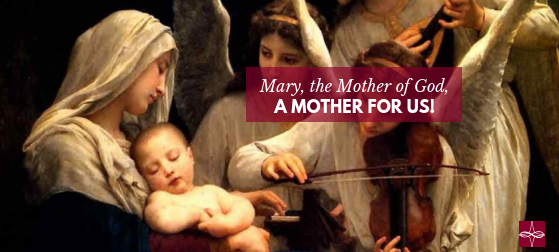

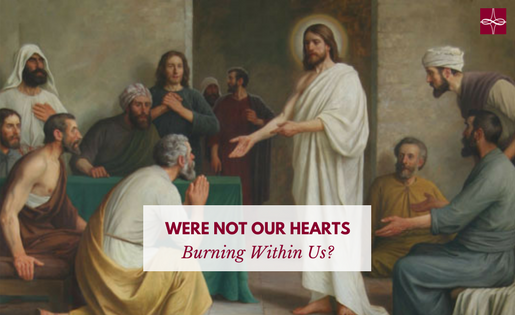

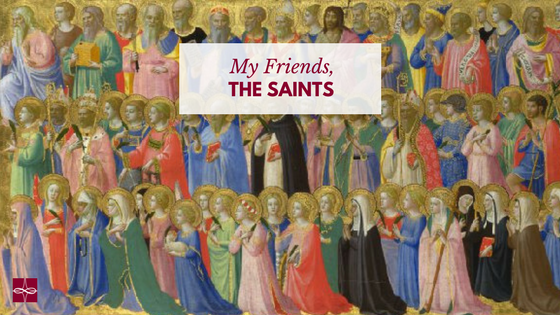

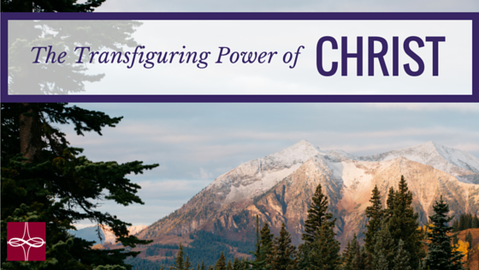


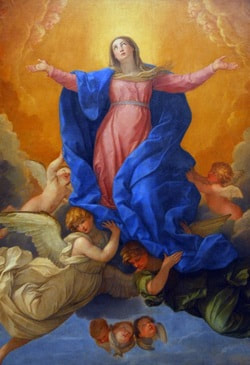
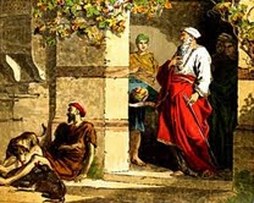
 RSS Feed
RSS Feed